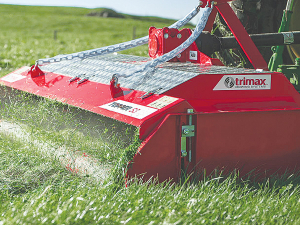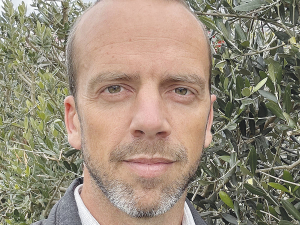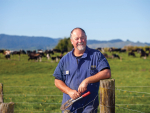Topping a dairy farm’s grazing pastures can produce advantageous outcomes to your bottom line.
Typically done during mid-spring through mid-summer when pasture growth is most abundant, topping paddocks makes the process of quality control both manageable and achievable.
Pre-graze topping can remove dense weed canopies, allowing grass a chance to recover and thrive in otherwise overrun areas, while also removing seed heads, allowing for more palatable growth to flourish. Postgrazing mowing clears uneaten grass clumps and spreads dung to promote uniform regrowth.
Other benefits to mowing or topping to the desired residuals, as opposed to grazing, ensures a clean, sharp cut on the leaf of the grass which contributes to healthy and robust regrowth. The regrowth is more nutritious for the cows, in that over 80% of leafy new grass growth can be effectively processed by grazing animals, whereas less than 50% of mature or dead plant material is nutritionally beneficial.
A study by the New Zealand Grasslands Association concluded that mowing or topping grazing pastures could lead to improvements in milk solid production and live weight gain, a statistic backed by Teagasc, the Irish Agriculture and Food Development Authority, indicating an increase in milk yields of up to 2kg/cow/day.
Commercial mowing and topping equipment manufacturer Trimax Mowing Systems suggests that several points need to be considered when selecting a machine. Looking at the finish, aim for a clean cut, good dispersal of the clippings across the full width of the machine and the ability to travel over contours, without scalping. They also note the need to factor in some adjustability, aiming to use it for topping or mowing, meaning it needs to offer a wide range of cutting heights.
Obviously machine size will be dictated by tractor availability on the farm, but clever purchasers will also be on the lookout for machines that require minimal maintenance, but if anything does go wrong, good service and parts support from their local dealer.
Trimax mowers has just released its new Topper S3, with the factory claiming it cuts better, is more practical and easier to maintain.
Looking at the machine in more detail, an automatic belt tensioner maintains a constant tension on the belt, resulting in a better cut in heavy conditions, while also reducing belt wear, extending their working life. For ease of maintenance, the latest machines offer improved access to roller bearing grease nipples.
Externally, new stand-on covers allow operators to access the rear of the tractor more easily when coupling the mower, while the improved latch system also makes accessing the drive system a lot easier for maintenance purposes.


















